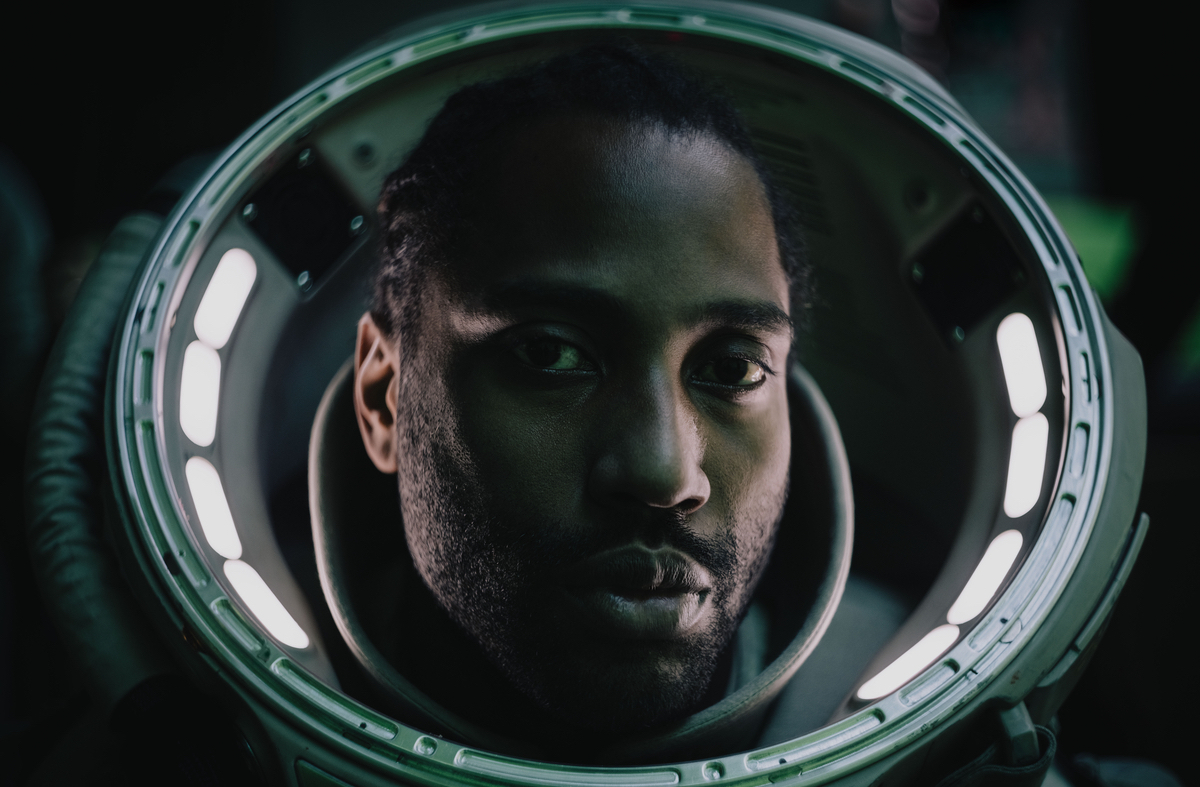We live in an age that struggles with some of the most profound questions of humanity and technology our civilization has ever seen. How far should we push the development of artificial intelligence? What’s to be done about Western barbarism and aggression? Will space travel usher in a new golden age or more of the same old terror? Gareth Edwards’ new film, The Creator, taps into all these questions—but that exploration consists of more style than substance.
The Creator focuses on Joshua (John David Washington), a former special forces agent hired to track down a new weapon created by a mysterious AI designer called Nirmata, or “Creator.” Joshua must travel across the world, to where AI have retreated after setting off a nuclear bomb in Los Angeles and being banned from North America. Like other Westerners, Joshua has been taught that AI are nothing but mindless programming, but he soon finds out that they’re just as human as he is.
Visually, The Creator is a breathtaking work of science fiction, filled with awe-inspiring (and terrifying) technology. At the heart of the film is Nomad, a colossal military base that drifts through the stratosphere, using massive lasers to scan the ground below for targets. Nomad is a chilling presence in the film, and it doesn’t take long for the audience to learn, based on its behavior, when a deadly attack is imminent. It’s a beautiful bit of world-building, and it’s not alone: the film is also filled with massive war machines (with “U.S. army” printed in a friendly Helvetica on the sides, of course) and a wide array of fascinating robots, both humanoid and otherwise. The influence of Edwards’ previous film, Rogue One: A Star Wars Story, is palpable.
Washington delivers a strong performance as Joshua, struggling with his grief over his missing wife Maya (Gemma Chan) while slowly learning that his mission isn’t as cut-and-dry as he believed. We don’t see much of Maya herself, but Chan infuses the role with her trademark charisma. Madeleine Yuna Voyles makes her debut as the cherubic AI Alfie, who finds herself in Joshua’s reluctant care.
The AI Joshua encounters are human in everything but name: they live among humans, form communities and families with them, and join religious orders. In The Creator, technology and spirituality are intertwined, with both humans and AI alike wrestling with the mysteries of life and creation.
Despite the film’s promise, though, it’s held back by clumsy and derivative storytelling. The editing is confusing at times, with the film’s atmosphere getting in the way of clarity. Throughout the movie, you might find yourself swept up in a charged emotional beat, only to realize a second later that you’re not sure what the characters are doing or why. The major plot beats are pretty predictable and feel like well-trodden territory after films like Bladerunner.
Then there’s the problem of the AI’s chosen enclave, a mashup of several distinct countries with the alarmingly generic name “New Asia.” It’s only logical that, having found safe haven in Asia, robots would take on Asian likenesses and cultures, but that leads to a conflation of robots with Asians and Asians with robots. As is too often the case, Asian women, in particular, are treated like objects, lying naked on tables in pieces, or getting wrapped in plastic and warehoused. There are many ways to convey the movie’s themes—the specter of world-ending war, the nature of sentience, or technology’s place within tradition—and Edwards missed the mark here.
The Creator reaches for the very best that science fiction can offer: tight human dramas at the center of dizzyingly vast technology. In Joshua’s world, as in ours, technological questions are spiritual questions. The film grasps at those questions but gets tangled up in itself before it can reach an epiphany.
(featured image: 20th Century Studios)










Published: Sep 26, 2023 6:25 PM UTC